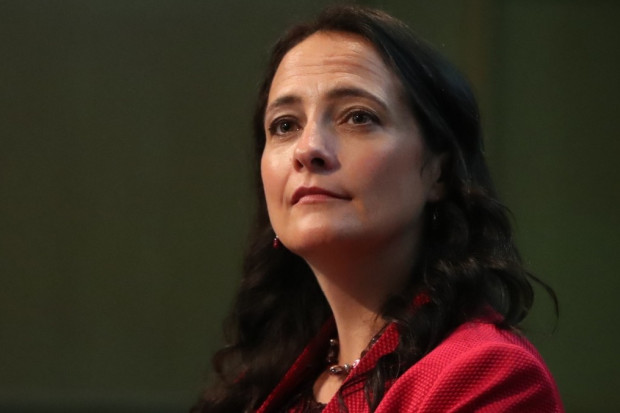
New report includes a number of recommendations to support the Irish music sector (Photo: Ruthless Imagery)
'Why would I want to keep working in a role that doesn't value or pay me enough?': Irish Music Industry Report Highlights Poor Pay and Conditions
First Music Contact and Theatre Forum have published a new report on pay and conditions for those working in music in Ireland.
The Review of Pay and Conditions in the Music Industry report is the result of a survey of musicians, artists, arts workers and organisations that was carried out in February and March of this year.
The survey heard from 323 individuals and 142 organisations and explored the issues of earnings, income from other occupations, financial security, sick pay, pensions, health insurance and maternity and paternity pay, as well as issues regarding recruitment for music and arts organisations.
According to the report, individual respondents to the survey earned just €14,553 from their work related to music in 2022. The median figure was even lower – €5,500 – because earnings from music-related work ranged vastly from a loss of -€4,585 to a maximum of €220,000. When all other sources of income were taken into account, the median annual income for individual respondents working in the music industry was €29,000.
The survey also showed that:
- 46% of respondents reported additional earned income from outside the sector;
- 33% relied on income solely from the sector;
- 15% reported a substantial increase in their earnings in the sector in 2022 compared to 2019;
- 23% received support from social welfare services;
- 16% of respondents reported a reduction in their earnings in the sector in 2022 compared to 2019; and
- 16% received income from another member of their family or household.
The music organisations that took part in the survey reported issues in recruiting, with 65% having difficulty filling full-time, part-time, casual and freelance roles. 34% of individuals claimed they are very or extremely concerned that financial pressures will force them to leave the sector in the next six months.
9% of those from the music industry said they had received income from the Basic Income for the Arts scheme in 2022.
Personal experiences
The report also quotes a number of respondents speaking about their personal experiences in the industry. One emerging artist said, ‘I feel like, in the … music industry, it costs more to be involved than you make back. You are paying for distribution, recording costs, PR, Facebook ads, etc. and you only make back on streams or merchandising but it’s hard to balance out the thousands of euros it costs to release music.’
Another adds: ‘I have been seriously considering leaving the industry to work full time in a more fruitful industry, e.g tech, so that I am more financially comfortable … why would I want to keep working in a role that doesn’t value or pay me enough?’
Commenting on the report, arts consultant Heather Maitland, First Music Contact CEO Angela Dorgan and Theatre Forum Director Anna Walsh said:
We speak of promoting the concept of a sustainable career in the arts and music, but we are careening towards a tipping point where this working life is becoming untenable. Already many have left the sector as they cannot afford to work in it, and can no longer cope with the stress of precarious working conditions, and the impacts that has on their lives and, for many, their dependents.
Recommendations
The report suggests a number of actions that could be implemented to improve the pay and conditions of those in the industry, including
- An extension of the Basic Income for the Arts scheme to include a wider range of musicians;
- Increased grants and other financial supports for artists;
- Establishing standard rates and expenses for performance and recording work and for composers;
- Increased pay for music teachers;
- A more active Musicians’ Union or other body to implement minimum pay and working standards;
- More music education opportunities for children and young people; and
- More exposure for Irish music on national radio stations.
To read the full report, see below. For further information, visit www.firstmusiccontact.com/pay-and-conditions-survey-1
Subscribe to our newsletter here.
Published on 16 August 2023















